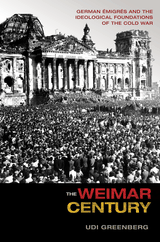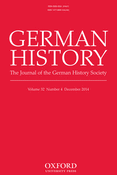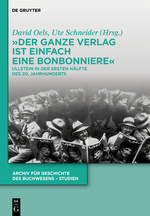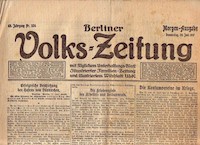 In his study The Weimar Century: German Émigrés and the Ideological Foundations of the Cold War, Udi Greenberg traces the academic and political careers of Weimar émigrés Carl J. Friedrich, Ernst Fraenkel, Waldemar Gurian, Karl Loewenstein and Hans Morgenthau to show ‘that the foundations of Germany’s reconstruction [after WWII] lay in the country’s first democratic experiment, the Weimar Republic. Continue reading
In his study The Weimar Century: German Émigrés and the Ideological Foundations of the Cold War, Udi Greenberg traces the academic and political careers of Weimar émigrés Carl J. Friedrich, Ernst Fraenkel, Waldemar Gurian, Karl Loewenstein and Hans Morgenthau to show ‘that the foundations of Germany’s reconstruction [after WWII] lay in the country’s first democratic experiment, the Weimar Republic. Continue reading
Welcome to the Weimar Studies Network
The Weimar Studies Network (WSN) is an international platform for researchers and academics working on the history of the Weimar Republic.
It offers information on recent publications, up-coming events and on-going research projects on the politics, culture and society of the interwar years in Germany.
The WSN is open to anybody with an interest in the history of Weimar Germany.- Architecture Art History Berlin Biography Conference Cultural History Economic History Education Exhibition Fashion Foreign Policy Gender General History History of Science History of the Everyday Intellectual History Journal Legal History Literature Media History Military History National Socialism Political History Religious Culture Resource Social History Theatre & Film Transnational History Visual Culture
Blogroll






